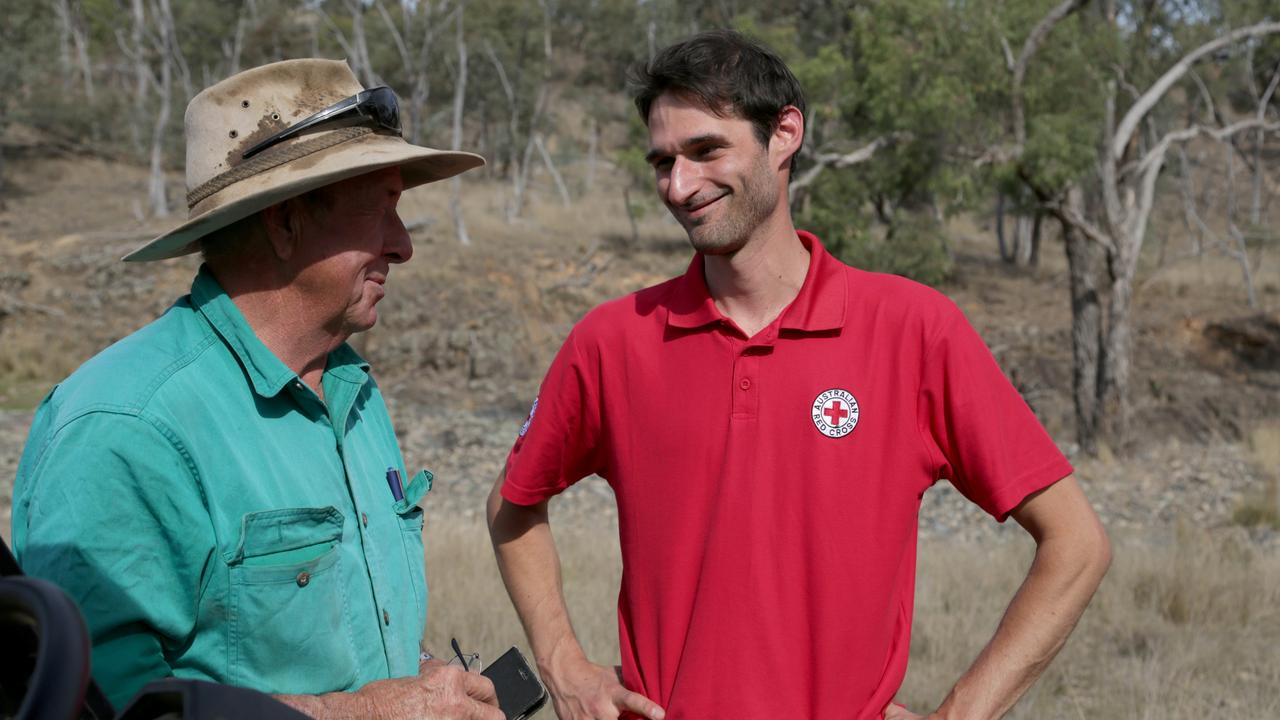Remote families need a village too
Rural Weekly catches up with the recently elected federal president of the Isolated Children’s Parent’s Association, Alana Moller, who wants to see equity and an increase in funding for geographically isolated students and their families.

CLERMONT grazier Alana Moller is the new federal president of the Isolated Children’s Parents Association, bringing to the position a passion for teaching and education with a lifetime’s understanding of life in the bush for kids and their parents.
Alana said she takes to heart a quote by Theodore Roosevelt: “Do what you can, with what you have, where you are”.
“That really hits home for me: it’s something I feel represents ICPA and geographically isolated families,” Alana said.
“It doesn’t matter where you live, it doesn’t matter what your situation is, you can make a difference, you can be a part of the bigger picture.
“When you live in a geographically isolated area it often does feel like you’re on your own, that you don’t have support mechanisms around you.”
She said organisations like ICPA, and distance ed schools offered those sorts of connection and support mechanisms.
“It’s really important to take advantage of those opportunities to get together with other people who are in the same situation as you and can relate to you,” Alana said.
“Isolated should not mean alone.”
This idea extends beyond issues around parenting, and education, to networking with the organisation’s predominantly female membership: experiencing being a part of a minority group of remote-living rural women, giving power through united voice articulating a shared experience.
“They say it takes a village to raise a child, but it takes a village for all things. It’s important to have your community to support you across the board,” Alana said.
Alana’s parents moved on to a cattle property near Middlemount in the Central Highlands in the 1970s and Alana said she was lucky that by the time she and her sister were ready for school, a school had been built in the district.
Top of her year, the bright young rural woman headed to university in Rockhampton to study education, with a plan to work as a teacher in Australia’s remote communities.
Life took a different turn, however, and she met her husband Scott while she was on a prac teaching placement in Clermont. The couple married in 2002, a year after Alana graduated. A secondary English and humanities teacher, she made the daily hour-and-a-half trip in from Star of Hope station to Clermont High until 2010, when her older daughter began distance education.

“Once we began distance ed, I needed to be at home teaching,” Alana said.
It’s been a busy schoolroom with three daughters. Mykenzie is in Year 9 at boarding school now, and will be joined there next year by Zarah, who is currently in Year 6. Addison, the youngest, is in Year 2.
When Alana has to travel away for ICPA, husband Scott steps into the school room.
Alana has worked from local branch through to federal level in her years of volunteering with ICPA.

“I’ve been on the federal council since 2017. I was looking after the distance education portfolio, because that’s where my passion has been,” she said.
ICPA is currently focused on a “menagerie” of issues for rural and remote students.
“One of the biggest things we are focusing on at the moment is the AIC – Assistance for Isolated Children,” she said.
The allowance has been in place since the 1970s, and works in several forms to support geographically isolated students study either at boarding school or via distance education. It also assists families that need to establish a second residence in a town to facilitate education in a day school.
“It’s welcome assistance and we appreciate it, but boarding expenses are increasing continuously. Although there is a small increase in AIC each year, the gap is widening,” Alana said.
“We are seeing families in drought situations who simply cannot afford to send their kids away. We are trying to get a review of the AIC to see how it can be made more effective.”
Alana said the group was also pushing for the establishment of a new benefit, the Rural Hardship Education Fund, that could be in place for prompt rollout in disaster or drought declaration situations, to allow rural-remote families to maintain education standards for their children.
Over October 14–16, 10 federal ICPA delegates will conduct 29 meetings in Canberra with ministers, MPs and senators’ departments and other stakeholders to promote policy shifts and improve flow between members and government departments.
“Making sure our kids have equity of access to education is really important,” Alana said.


